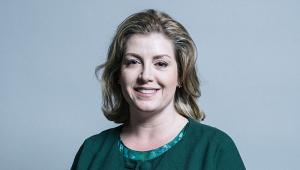18 March 2011
The government will require rigorous accountability for overseas aid spending in return for protection from spending cuts, the international development minister said this week.
Speaking at the CIPFA international conference, Alan Duncan said spending on overseas development was both a moral and economic necessity, but stressed: ‘We want to get full value from every penny we spend on aid.
‘If the moral case for overseas aid was not enough, aid is also in our national [economic] interest because poverty abroad affects each and every one of us.’
The Department for International Development had reviewed aid programmes to individual countries, which had retained funding only if their local DfID office could demonstrate clear achievements.
‘We are going to focus spending where need is greatest, in particular on investment in women and girls, and in creating opportunities for people in those countries to work, trade and save,’ Duncan said.
‘There will be greater emphasis on what aid delivers on the ground. Instead of bragging about how much we spend, we are interested in the results.’
He recognised that this approach left the government open to criticism that it had focused spending solely on things that were easy to measure, but insisted: ‘We will not fall into that trap, 30% of the money will go to fragile and conflict-affected states even though things there are difficult to measure.’
Duncan added: ‘Helping a state before it fails is a great deal cheaper than doing so afterwards.’
Corrupt or incompetent foreign governments were warned they would be bypassed.
‘Taxpayers’ money must not be misused, and we are not naïve about that,’ Duncan said.
‘In some countries financial management is weak, corruption is high and there are flawed judicial systems. If we cannot work through a government, we will work through the United Nations or non-governmental organisations.’
Spending would be carefully checked and ‘we will shout about it’ if money is misused, he added.
As an example of this approach, Duncan congratulated a health centre built with UK aid funding in a remote area of western Nepal.
‘There is an accounts sheet pinned up on the wall there as part of social auditing, which records all spending,’ he said.
‘That cuts the risk of corruption, because everyone can see it and public opinion would act if anyone were stealing money, and it also gives a sense of ownership to people there.’
All speakers' presentations from the CIPFA international conference can be watched again on the CIPFA website



















